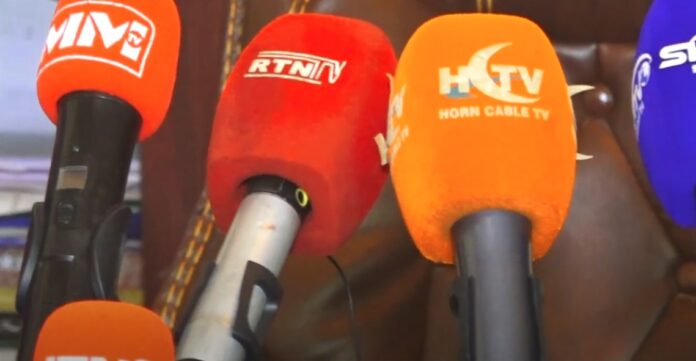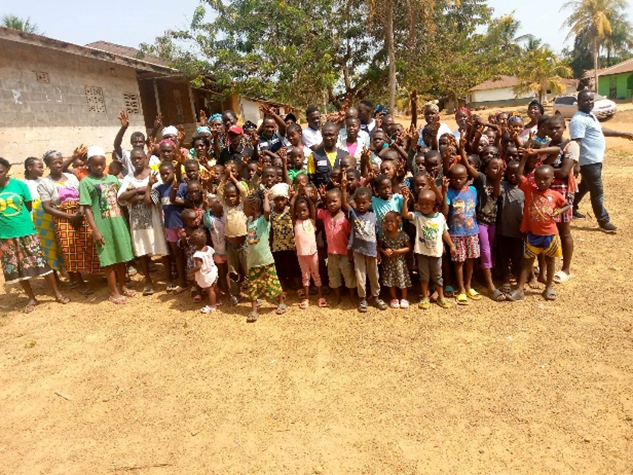NAIROBI — Authorities in Ethiopia should reverse the recent suspensions of more than a dozen news outlets and let members of the press and journalist advocacy groups work freely, the Committee to Protect Journalists said Friday.
Since late January, authorities have suspended 15 foreign media outlets operating in Somali Regional State, and also revoked the license of a regional journalists’ association, according to news reports and people familiar with the cases.
“The recent suspensions of 15 media outlets the ban on a media association in Ethiopia’s Somali Regional State have eroded reporting in the region, and paint a picture of a government unwilling to make room for dissenting voices,” said CPJ Sub-Saharan Africa Representative Muthoki Mumo. “Authorities should allow journalists from these outlets to resume their jobs, ensure that enforcement of licensing regulations is not used to muzzle the media.”
On January 28, the Somali Regional State Communication Bureau, a government office that oversees the region’s media, indefinitely suspended the 15 media outlets and their representatives from operating in the state, saying that they did not have the licensing required for foreign media outlets, according to a letter from the bureau reviewed by CPJ and multiple media reports.
Those outlets, all of which broadcast in the Somali language and have their headquarters outside of Ethiopia, include BBC Somali, Kalsan TV, Universal TV, Horyaal TV, Eryal TV, CBA TV, Horn Cable TV, Star TV, RTN Somali TV, STN TV, Goobjoog TV, Saab TV, Sahan TV, MM TV, and Five Somali TV, according to those sources.
In the letter, the communication bureau said it was complying with an earlier directive from the federal Ethiopian Media Authority to enforce federal licensing requirements. Federal regulations on foreign media registration, which came into force in May 2022, require foreign broadcasters opening a branch in the country to register with the media authority and prohibit journalists from contributing to foreign outlets without a registration certificate.
Abdulrazaq Hassan, chair of the Somali Region Journalists Association, a local media rights group, told CPJ via messaging app that most of those outlets did not have offices in Ethiopia, but instead worked with correspondents in the country.
The SRJA was quoted in those media reports saying that licensing was being used as pretext to shutter independent outlets, and that journalists from the 15 media companies had previously operated with permits from the regional communication bureau.
Abdulkadir Reshid Duale, the head of the Somali communication bureau, told CPJ in a statement that his office had issued temporary permits to the outlets in 2018, which had since expired. He said the media outlets had been warned about the need for federal licensing, and would be allowed to resume working once they had the federal license.
Journalists and managers from eight of the suspended outlets told CPJ that they had been previously granted permission to operate by regional authorities, that the steps to receive a federal license were not clear, and that the suspensions were enforced without adequate warning.
Also, on January 31, the Somali Region Justice Bureau, which oversees the registration of civil society organizations in the region, revoked the SRJA’s license and accused it of having “acted inappropriately,” according to a letter from the bureau reviewed by CPJ and a statement by the Center for Advancement of Rights and Democracy, an Ethiopian nongovernmental organization.
In a February 3 letter reviewed by CPJ, the communication bureau asked police and state security to take “appropriate action” against the SRJA, which it accused of operating illegally and “spreading incorrect and misleading messages.”
Separately, regional police detained Muhiyadin Mohammed Ali, a reporter with the U.K.-based broadcaster Kalsan TV, after he published a video on his personal Facebook page protesting the suspensions. He was released on February 2 without charge, according to news reports, a statement by the SRJA, and a person familiar with the case who spoke to CPJ on the condition of anonymity, citing fear of retaliation. In his statement, Abdikadir said Muyihadin threatened a government official in the video.
The Ethiopian Media Authority did not respond to CPJ’s queries sent via messaging app and email.







